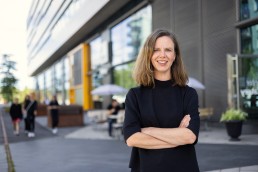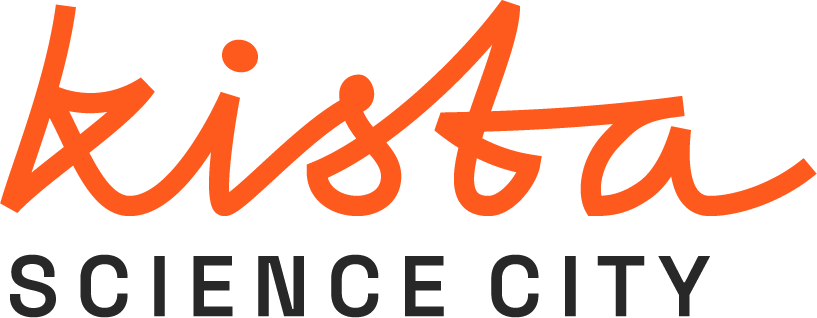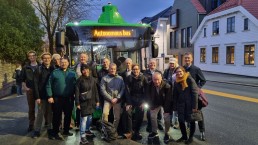Survey: Help us shape cybersecurity support initiatives for Swedish tech businesses
As a tech professional, you understand the critical role of cybersecurity in safeguarding your company’s digital assets. Now, you have the chance to directly influence the support initiatives that will equip you to create secure products and solutions.
Take just 3 minutes to complete our survey and help us understand your specific cybersecurity needs and challenges.
The survey is a part of the research conducted by Sweden Secure Tech Hub, an initiative that creates activities and offerings in the field of cybersecurity for small and medium-sized tech companies.
By responding to the survey, you help us help you. The input will serve as the foundation for the types of investments we, as Science Park, need to make to support your company.
Sweden Secure Tech Hub will offer a variety of resources and services, ranging from lectures, webinars, expert assistance, testing opportunities, and help in finding the necessary funding for planned development initiatives. Some of these activities are already underway, such as open meetings within the Cyberly network, where you can gain inspiration and support.
Sweden Secure Tech Hub is a national innovation hub in the field of cybersecurity and is a collaboration between six of Sweden’s leading Science Parks: Linköping Science Park, Lindholmen Science Park (Gothenburg), Ideon Science Park (Lund), Kista Science Park (Stockholm), Luleå Science Park, and Blue Science Park (Karlskrona).
Your voice matters. By completing the survey, you’re actively shaping the future of cybersecurity for Swedish tech companies. Together, we can create a secure and thriving tech ecosystem that empowers innovation and growth.


Sweden ICT, the organization behind Sweden Secure Tech Hub, is a collaboration between six of Sweden’s leading science parks in tech and digitalization: Linköping Science Park, Lindholmen Science Park (Västsverige), Ideon Science Park (Lund), Kista Science City (Stockholm), Luleå Science Park, and Blue Science Park (Karlskrona). Together, we represent an ecosystem with over 2,400 companies and 59,000 employees.
Sweden Secure Tech Hub has been designated by the EU as a European Digital Innovation Hub (EDIH) and has been tasked with supporting and strengthening companies and society in their secure digitalization efforts.
The work is funded by the European Regional Development Fund, Tillväxtverket, and Region Blekinge, in collaboration with the participating partners.
If you want to learn how to take part of upcoming activities, please contact:
Karin Bengtsson, CEO, Kista Science City
Email: karin.bengtsson@kista.com
Emma Sturesson, Project Manager, Blue Science Park
Email: emma.sturesson@bluesciencepark.se
Applied Autonomy establishes Swedish hub
Applied Autonomy establishes Swedish hub
Applied Autonomy, known for innovative work in autonomous transportation, has chosen Kista as a strategic hub for their Swedish operations. This decision marks an important step in the Norwegian company’s expansion and commitment to grow within the Swedish market.
Swedish base
Choosing Kista as a Swedish hub reflects Applied Autonomy’s commitment to being closer to key partners and to becoming part of the dynamic tech landscape in the area. CEO Olov Medland shares his perspective on this strategic decision:
– Kista’s unique combination of technological expertise and collaborative culture made it an ideal choice for us. We are excited about being part of this tech community, contributing to and benefiting from the synergies it offers.
Applied Autonomy is positioned to play a significant role in the evolving landscape of urban transport in Stockholm and Sweden. The company is enthusiastic about sharing its insights and experiences in autonomous transport and collaborating with other companies and innovators in this field. “The possibilities are endless, and we’re eager to explore them,” says Medland.
5G Ride
Applied Autonomy has recently joined the 5G Ride project. Central to their contribution is the xFlow® platform, an innovative solution that ensures a seamless link between vehicles, operators, and end-users, thereby enabling safe and efficient transport. Medland emphasizes the importance of this project:
– Joining 5G Ride was a natural decision for us. The project aligns perfectly with our capabilities, including xFlow®, and our commitment to shaping the future of autonomous transportation. Our participation in this innovative project is an excellent opportunity to demonstrate how our technology can be integrated into existing urban transport systems, enhancing safety, efficiency, and overall user experience.
Cross-border dialogue on autonomous public transport
In November 2023, the 5G Ride project partners from Ericsson, RISE, & Kista Science City, in collaboration with Drive Sweden Policy Lab, Trafikverket, and Transportstyrelsen visited Stavanger, Norway, to observe a full-scale autonomous bus in a real urban setting. This visit allowed the teams to witness the operation of a self-driving, full-scale bus navigating complex urban conditions, including traffic lights, roundabouts, lane changes, and a tunnel, at speeds of up to 40 km/h.
Observations from Stavanger
The primary objective of the Norway trip was to discuss and understand the challenges and opportunities of advanced pilot projects in autonomous public transport. The discussions highlighted the importance of close collaboration between different stakeholders – including tech developers, public transport authorities, and regulatory entities – to drive progress in this complex field. This approach is crucial for combining expertise, sharing insights, and aligning efforts towards common goals in autonomous transportation. Additionally, local Norwegian partners emphasized the value of continual development, focusing on real-world testing of these systems to enhance safety and efficiency in urban mobility.
A key topic during the Stavanger visit was the comparison of the regulatory environments for autonomous vehicle testing in Sweden and Norway. Each country’s approach to regulations and funding for research projects has significant affect for the development of autonomous transport solutions. This highlighted the importance of adaptable regulatory frameworks in supporting advancement and innovation within this field.
Applied Autonomy
The visit to Norway was hosted by Applied Autonomy, a new partner in the 5G Ride project. As a company specializing in software solutions for autonomous transportation, Applied Autonomy brings crucial expertise to the project. Their involvement is expected to enhance the project’s capabilities, particularly in terms of scalable and adaptable autonomous solutions. This partnership marks a big step in the collaborative effort to develop and implement advanced autonomous transport systems.
In addition to Applied Autonomy, the Norway visit saw participation from several organizations, including Adastec, Vy, and Kolumbus, along with representation from Statens vegvesen. Each of these organizations contributed to the success of this trip, bringing unique perspectives and expertise to the discussions and demonstrations.
Future Directions
Looking ahead, the 5G Ride project plans for new demo days and test with autonomous vehicles in Stockholm in 2024. As the project enters its next phase, the project remains committed to leveraging international learnings and local expertise to revolutionize urban mobility. The combined efforts are key in our journey towards a more connected and sustainable future in public transportation.
Internship opportunities
Internship opportunities
The collaboration between academia and industry creates a rich environment for learning and innovation. As 2024 approaches, many ocompanies and organizations in Kista are welcoming interns across a variety of technological fields. These internships provide students with the opportunity to work with experienced professionals, apply their academic knowledge in practical settings, and contribute to meaningful projects. This is an ideal chance for students from diverse backgrounds to gain valuable experience and advance their academic and professional journeys.
Explore these opportunities and find a project that aligns with your interests and career goals:
RISE Research Institute of Sweden
At RISE, interns can delve into a range of projects within the realm of the Internet of Things (IoT) and big data analysis. From exploring the security of ultra-efficient UWB networks to unlocking the future of energy-efficient IoT and analyzing nationwide cellular network traffic, RISE offers a platform for interns to engage with key technological advancements.
For detailed information on all available projects, visit RISE’s internship page.
PandionAI
PandionAI invites interns to contribute to the development of AlertSat’s geospatial support. This project offers an opportunity to work on enhancing the user interface and data flow within the AlertSat Portal, a crucial tool for decision-making based on satellite data.
Munters
Munters is seeking a Master Thesis Student within its Controls & Connectivity team. The selected candidate will work on creating sustainable climate solutions, focusing on areas like control systems, automation, and IoT.
FOI (Swedish Defence Research Agency)
FOI in Kista is looking for interns to work on diverse projects ranging from virtual gamma spectroscopic labs to defense analysis and underwater network localization. With a broad spectrum of opportunities in areas like software development, data analysis, and policy research, FOI’s internships meet the needs of a variety of interests and skills.
For detailed information on all available projects, visit FOI’s internship offerings for 2024
Excillum
Excillum offers three distinctive Master’s thesis projects. These include exploring thermal drifts in x-ray sources, understanding the limits of diamond endurance under electron beams, and developing high-resolution x-ray laminography for imaging layered components. Each project at Excillum is a blend of practical experimentation and theoretical exploration.
The new semiconductor landscape
The new semiconductor landscape
As digitalization accelerates, semiconductors become ever more crucial. This article explores the expanding microchip industry in Europe, Sweden’s central role in this growth, and how Kista-based institutions are driving advancements in this dynamic field.
Semiconductors are the technological cornerstone of modern society. These micro components power everything from mobile phones and vehicles to IoT and defense technologies. They are also vital for advancing energy-efficient systems that support the global shift towards a sustainable future. As digital demands grow, so does the need for these electronic building blocks.
Europe’s challenges and Sweden’s response
Recognizing the need for growth, the European Union is now taking decisive steps to strengthen its semiconductor industries. Accounting for just 10% of the global microchip market, the recently initiated European Chips Act is set to boost Europe’s production and enhance technological competitiveness and resilience in the sector.
Within this ambitious framework, Sweden is emerging as a key contributor. Aligned with the European goals, the country’s national strategy aims not only to revitalize its own semiconductor production but also to effectively contribute to Europe’s technological independence. In the midst of this national and international push in microchip technology stands Kista Science City.
Mikael Östling, professor at KTH Royal Institute of Technology, highlights the importance of these efforts:
– The initiative creates a need to educate thousands of engineers and retrain already working professionals. KTH is well-equipped for this, with a strong tradition of research and education in the semiconductor field. However, success also requires collaboration between universities and new startups. With its strong innovation environment, lab infrastructure, and companies in the semiconductor field, Kista has an opportunity to take a strong position in this development.
Local innovation and global impact
Kista’s mix of established companies, agile startups, and academic institutions fosters an environment where semiconductor research and development thrive. The area is home to several key players driving advancements in this field, and at the forefront of these tech ventures are KTH Royal Institute of Technology and the Electrum laboratory. The individual as well as collaborative efforts of these institutions significantly contribute to the microchip evolution, in KIsta as well as on the global stage.
KTH Royal Institute of Technology
KTH is a dynamic and multifaceted force in semiconductor research. With a broad spectrum of activities, spanning both theoretical and applied aspects, they range from developing new semiconductor materials and technologies to enhancing the efficiency and performance of existing ones. These advancements are not limited to technical aspects but also include exploring sustainable practices in semiconductor manufacturing, aligning with Sweden’s commitment to sustainable practices and, not least, UN’s Sustainable Development goals.
The Electrum laboratory
Electrum is a world-renowned laboratory with state-of-the-art facilities that serves as a center for international semiconductor research and innovation. Here, industry professionals and researchers within areas like micro and nanofabrication are provided with the resources to experiment with and refine semiconductor technologies. Electrum’s dedicated efforts ensure that the semiconductors produced meet the highest standards of performance while also being sustainable and cost-effective.
The fusion of research and innovation
The collaboration between KTH and Electrum Lab exemplifies a crucial bridge between academic research and industrial application. This partnership stands as a successful model of academia-industry collaboration, blending KTH’s theoretical insights and Electrum’s practical applications. Together, they not only facilitate the transfer of knowledge from the lab to the market but also ensure that innovations in semiconductor technology are both pioneering and relevant to current industry needs.
Looking ahead
It is the synergy of academic expertise and industrial pragmatism that positions Kista as a leader in the semiconductor field. Institutions like KTH and the Electrum laboratory are not just contributing to the local tech ecosystem; they are playing a vital role in elevating Europe’s position in the global semiconductor industry. Their efforts underline the importance of strategic partnerships and a collaborative approach in driving technological progress.
As Kista continues to be a hotbed for semiconductor research and innovation, it establishes its place as a key player in shaping the future of technology both in Sweden and across Europe.





